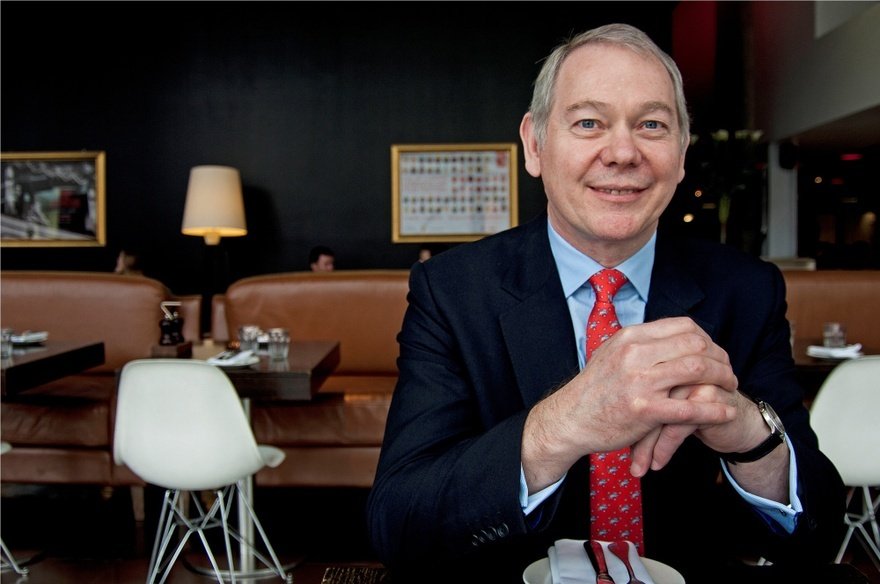Will hospitality pay the price for the sugar tax?
The National Food Strategy Report filled the headlines with stories of salt and sugar taxes and recommendations on a radical overhaul of the UK food system. Tom Vaughan examines how hospitality is expecting to cope with some of the findings.
The National Food Strategy, the first farm-to-fork review of the entire UK food system since World War Two, promised a radical new farm-to-fork vision for the UK.
Speaking to The Caterer in March 2020, author Henry Dimbleby said: "We are hoping to create a blueprint that Western societies can use to tackle two of the biggest problems they face: obesity and environmental damage."
Fast-forward 16 months and the report lived up to that billing. The 288-page document tackles everything from biodiversity loss and intensive farming through to climate change and the junk food cycle, delivering 14 new recommendations on how to overhaul the system for the better.
As the government prepares a white paper on the back of the report, how has the hospitality industry reacted to its findings? Just how likely is it that its recommendations will become enshrined in law? And what are the implications for a hospitality industry still coming out of one of the worst crises in history?
The report's 14 key recommendations included a new independently inspected ‘Eat and Learn' initiative in schools, reinstating the food A-level, extending eligibility for free school meals and guaranteeing the current £2.4b farm support budget in England until 2029 (instead of 2024) to help farmers transition to more sustainable methods.
However, it was three of the report's recommendations that drew particular attention from the hospitality industry: a 30% reduction in meat consumption, additional nutritional reporting from large food businesses and – most incendiary of all – a £3 tax per kilo on sugar and £6 per kilo on salt for use in processed foods, restaurants and catering.
The ambition of the report has drawn admiration from across the industry, with the likes of Jamie Oliver, Tom Kerridge and Compass UK all speaking out in favour of many of its findings – especially the focus on improved food education in schools.
Chief executive of UK Hospitality Kate Nicholls also praised its overall vision, but divided it into two areas of concern for the industry: "There are the longer-term macro issues, such as meat consumption and the importance of managing the environment. There will be implications for the hospitality sector there in terms of price and availability.
"But the big issue more directly affecting the sector is that of the sugar and salt tax. Even if the tax is placed upstream in the market, it will have an impact on cost price inflation at a time when the government shouldn't be imposing additional taxes or additional costs on the sector."
Sugar tax and reformulation
Certainly, research by the Food and Drink Federation showed that the tax could add £160 to the average annual grocery bill.
Dimbleby has made it clear that he sees the tax as a driver for reformulation, inspired by the Sugary Drink Tax of 2018. Speaking to BBC Radio 4, he said: "There is huge scope for reformulation. There may be some products that you can't reformulate – something like Frosties, where it's basically pure sugar – is going to be hard to reformulate. But the question you have to ask them is, ‘Is the freedom to keep Frosties cheap worth destroying the NHS for?'"
However, Nicholls does not believe it is that simple: "Product reformulation is by no means easy for lots of products, and therefore a tax will just result in higher prices."
Operators, too, fear that reformulation isn't as easy as Dimbleby makes out. Andrew Burton, the owner of the Mannion & Co café in York, said: "We're revisiting recipes all the time from a health point of view, asking if we can reduce salt or sugar, but it's all about taste and texture, and if we reduce it too much, it starts to become bland and customers will complain.
"The bottom line is we will have to pass the cost on to the customer. We've already had Brexit, that puts 22% on some products from the continent that we've had to pass on, and we'll have inflation coming out of this pandemic as well, so all our products are just getting more and more expensive."
The result is that before the white paper is even in its infancy, the government is distancing itself from the tax. Shortly after the publication of the report, prime minister Boris Johnson said: "We believe in tackling obesity, trying to help people to lose weight, promoting exercise and tackling junk food advertising and so on. I am not, I must say, attracted to the idea of extra taxes on hard-working people, let me just signal that."
One aspect of the report that has been met with a more favourable response from big businesses is the implementation of nutritional reporting from large businesses. Supermarkets including Sainsbury's, Waitrose and Tesco have all come out in favour, as has Greggs chief executive Roger Whiteside.
Alastair Storey, chairman and chief executive of contract caterer WSH, said: "For heaven's sake let the hospitality industry recover for five minutes before giving it additional responsibilities. But on the other hand, that is data that isn't too difficult to get hold off if you're a large company, because you've got it in your systems anyway. I think most companies would say: ‘Alright, we care about this as well'."
For heaven's sake, let the hospitality industry recover for five minutes before giving it additional responsibilities
Meat reduction
When it came to the question of meat reduction, Dimbleby's report shied away from recommending a meat tax, labelling it as "politically impossible", and instead recommended behavioural "nudges" to encourage people to reduce their meat consumption by 30%.
Kate Nicholls believes that, while the hospitality industry has a role to play, it is a complex issue: "The sector as a whole has a large number of plant-based alternatives, with a great deal of innovation going on. But in watching consumers and changing consumer habits, we don't swap one bad habit for another. If you look at the move towards nut milks and almond milks and the popularity of avocados, some of those have equally damaging environmental considerations that we need to take into account. This needs to be looked at holistically. This is not something that can be done as a short-term, knee-jerk reaction without thinking through the longer-term implications for a vital part of our economy."
This is not something that can be done as a short-term, knee-jerk reaction without thinking through the longer-term implications for a vital part of our economy
The government has committed to publishing a white paper on the report within the next six months, outlining how it will take these recommendations forward. And while Nicholls acknowledges that most hospitality businesses are preoccupied with staff shortages and survivability, she urges operators to enter the debate before anything becomes enshrined in law.
"Once you get further down the track it becomes harder to influence it, so the sector as a whole should be engaging in debate now," she says. "From an operator perspective, this is something to keep in the back of their minds because it's about issues that will need to be dealt with in terms of cost, price inflation and the cost of doing business."
Photo: Valerii__Dex/ shutterstock.com
Continue reading
You need to be a premium member to view this. Subscribe from just 99p per week.
Already subscribed? Log In







